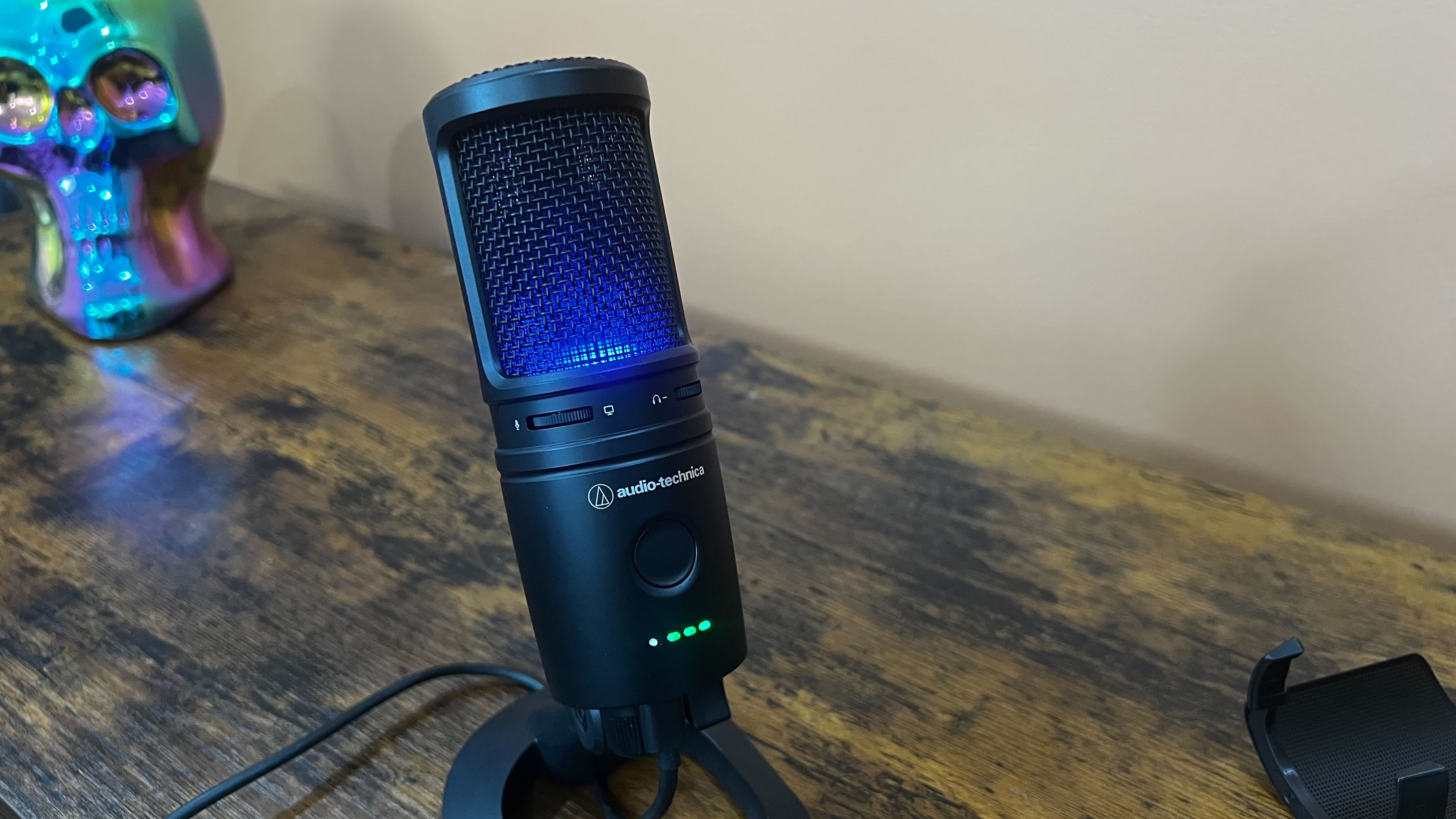Our Verdict
The Audio-Technica AT2020USB-XP is a wonderful premium microphone that sounds great and is built to last with some interesting quality-of-life features.
For
- Well-designed and sturdy
- Great Sound
Against
- Built-in noise reduction/ gain control doesn't do much
- One polar pattern
PC Gamer's got your back
When it comes to capturing professional-grade audio, Audio-Technica is renowned for its excellence. And the company hasn't missed a beat when it comes to creating a fantastic microphone for gamers, streamers, and budget-conscious content creators.
The AT2020USB-XP is a premium microphone that delivers the stellar sound quality you expect from such a legacy and several impressive upgrades for veteran users looking for more control over their voice.
The design of the AT2020USB-XP remains largely unchanged from other AT2020 models, except for a sturdier stand that won't wobble at the slightest breath, unlike the AT2020+ I tested previously. Another welcome change from the AT2020+ is the use of a USB Type-C connection instead of the USB-B input (yuck). You'll find the headphone jack at the back of the microphone, while the front features a touch-sensitive mute button with an LED light indicator and mix control dials.
I was particularly excited to test two new features: automatic gain control and noise reduction, which can be activated using the small buttons beneath the microphone. The onboard digital processing of the microphone does a decent job of maintaining consistent audio levels when your voice volume fluctuates, as you can hear in the sample below. However, it is more effective at amplifying soft voices than reducing the volume of loud ones.
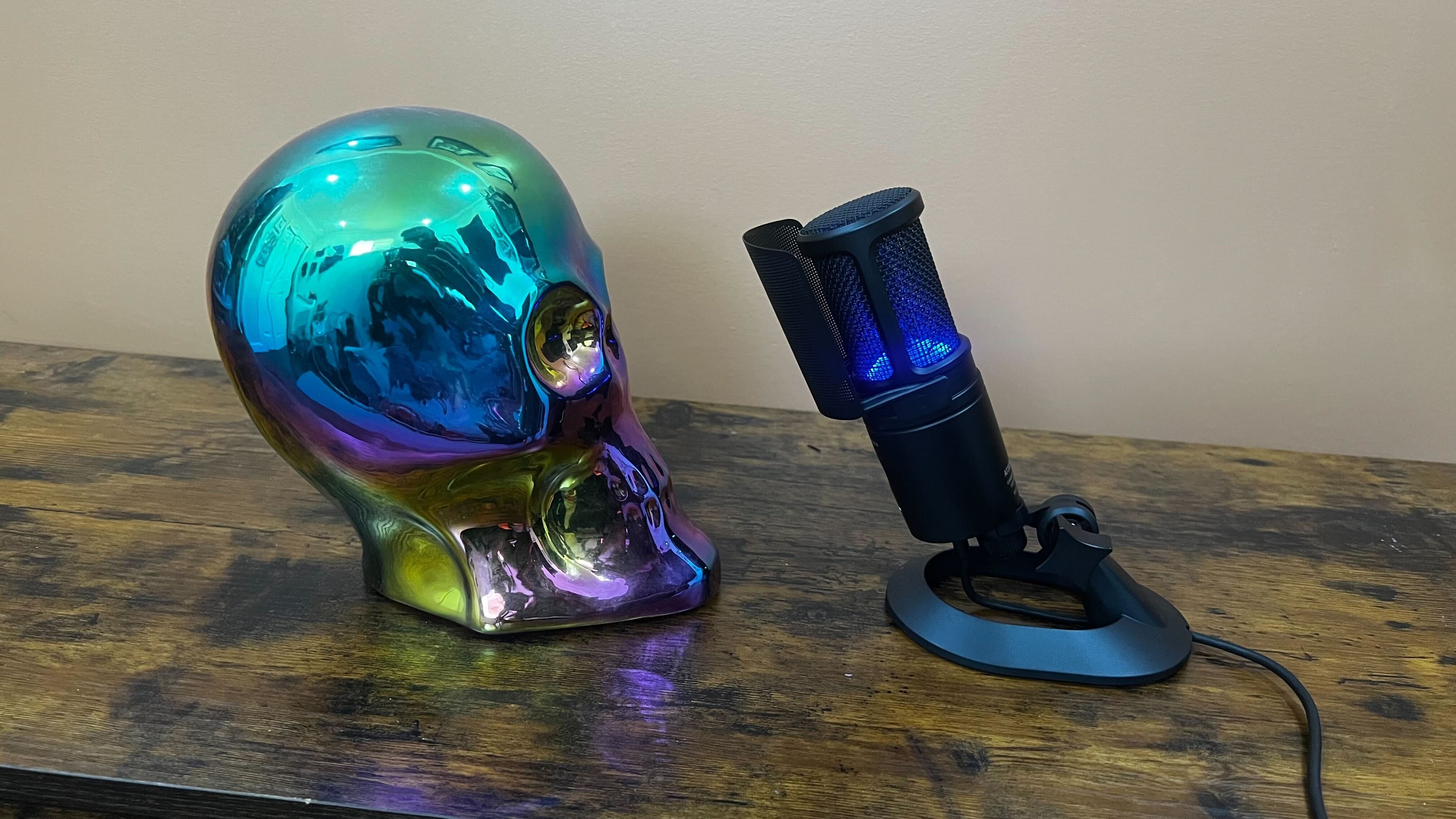
Polar patterns: Cardioid Polar Pattern
Connectivity: USB
Recording Sample Rate: 24-bit 48kHz
Frequency response: 20–20,000Hz
Features: Headphone level control, Mix control, Mute, Auto gain control, Noise-reduction, pop-filter, headphone jack
Price: $169 / £149.00 / $349.00 (AUS)
The auto-gain feature can be a real asset for streamers who tend to speak softly and constantly need to crank up their gain. The noise reduction buttons offer three levels of noise reduction, effectively reducing unwanted background noise.
While the noise reduction successfully eliminated the loud hum of my air conditioner, it wasn't as effective at filtering out keyboard taps and mouse clicks, even at the highest setting. It's nice that no software is involved in making this happen, which is the beauty of this plug-and-play microphone.
I mentioned the stand earlier, and there's a small design element about it that I really appreciate. The bottom of the stand features a slight cut-out for the USB cable, allowing you to run the cable underneath neatly to make everything look more organized. This little detail is a nice touch for someone constantly battling messy cable management.
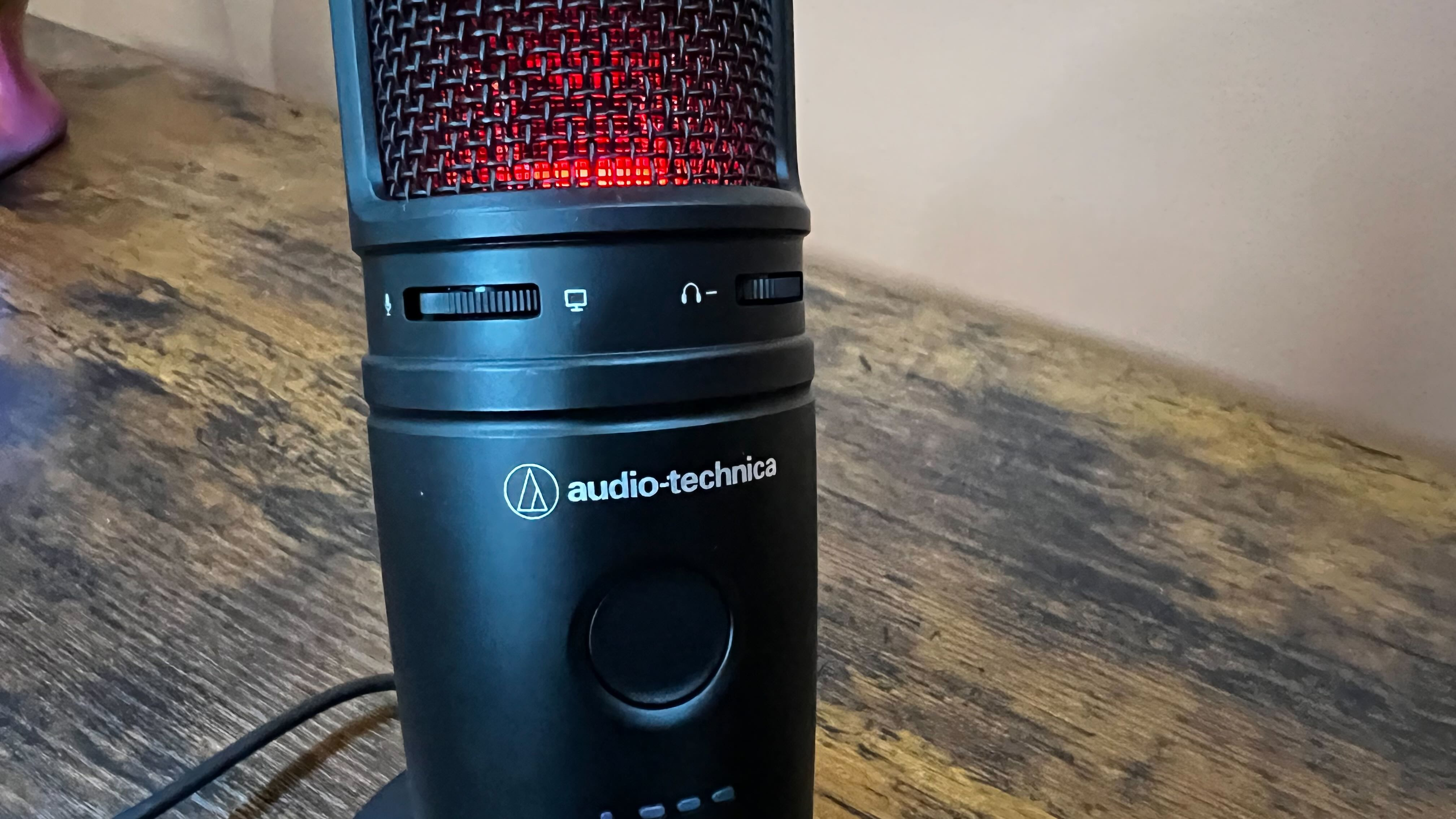
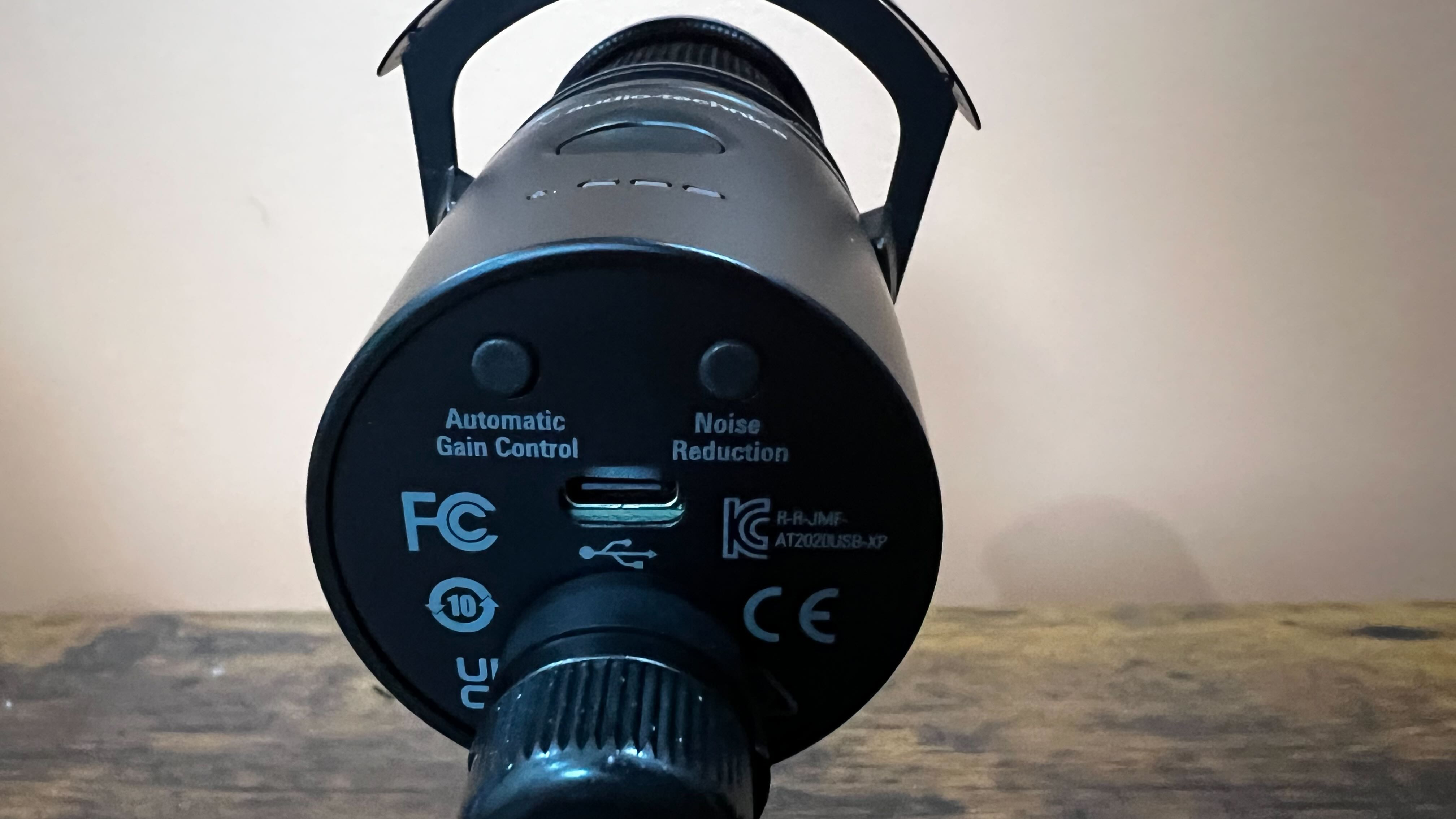
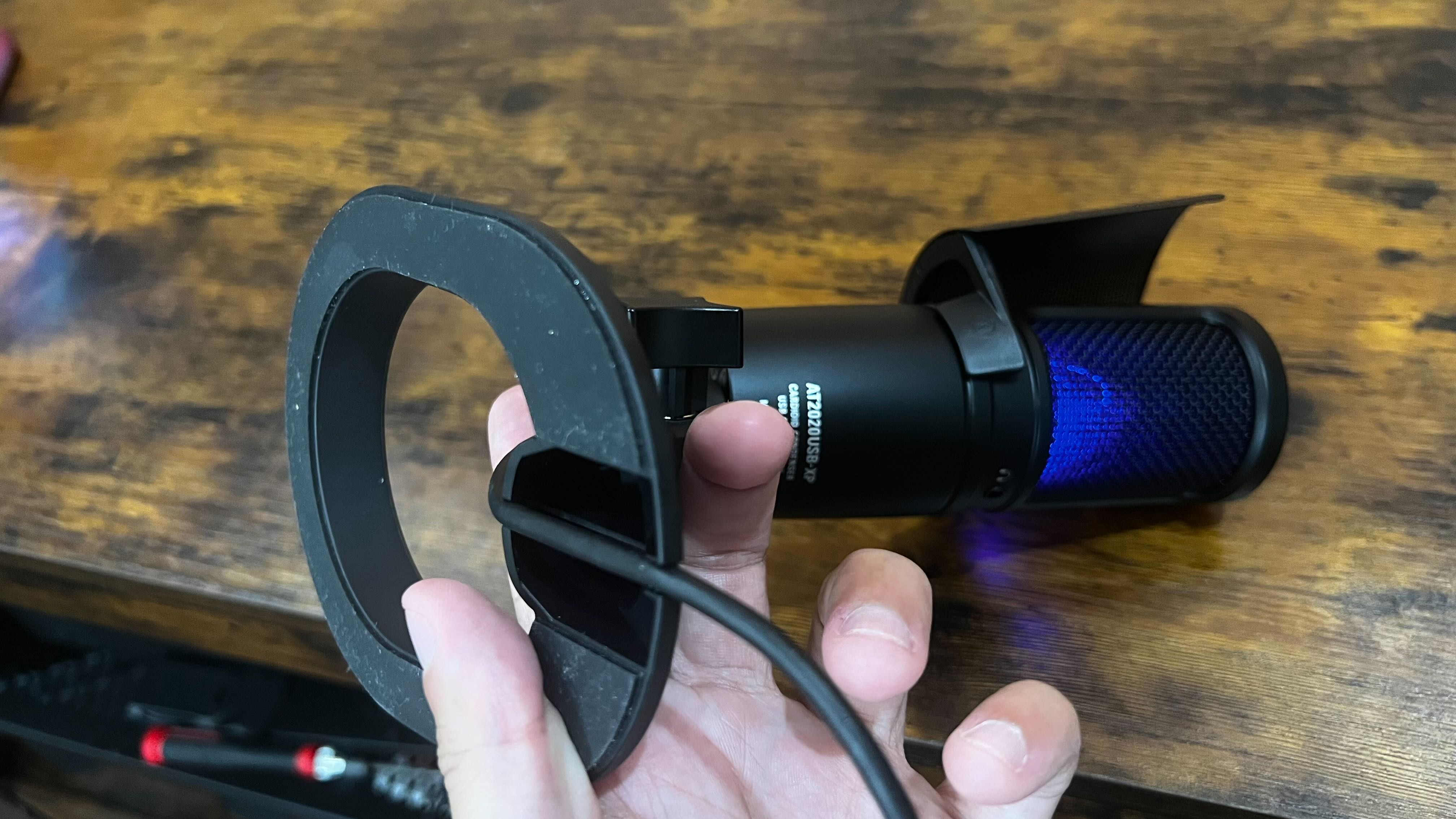
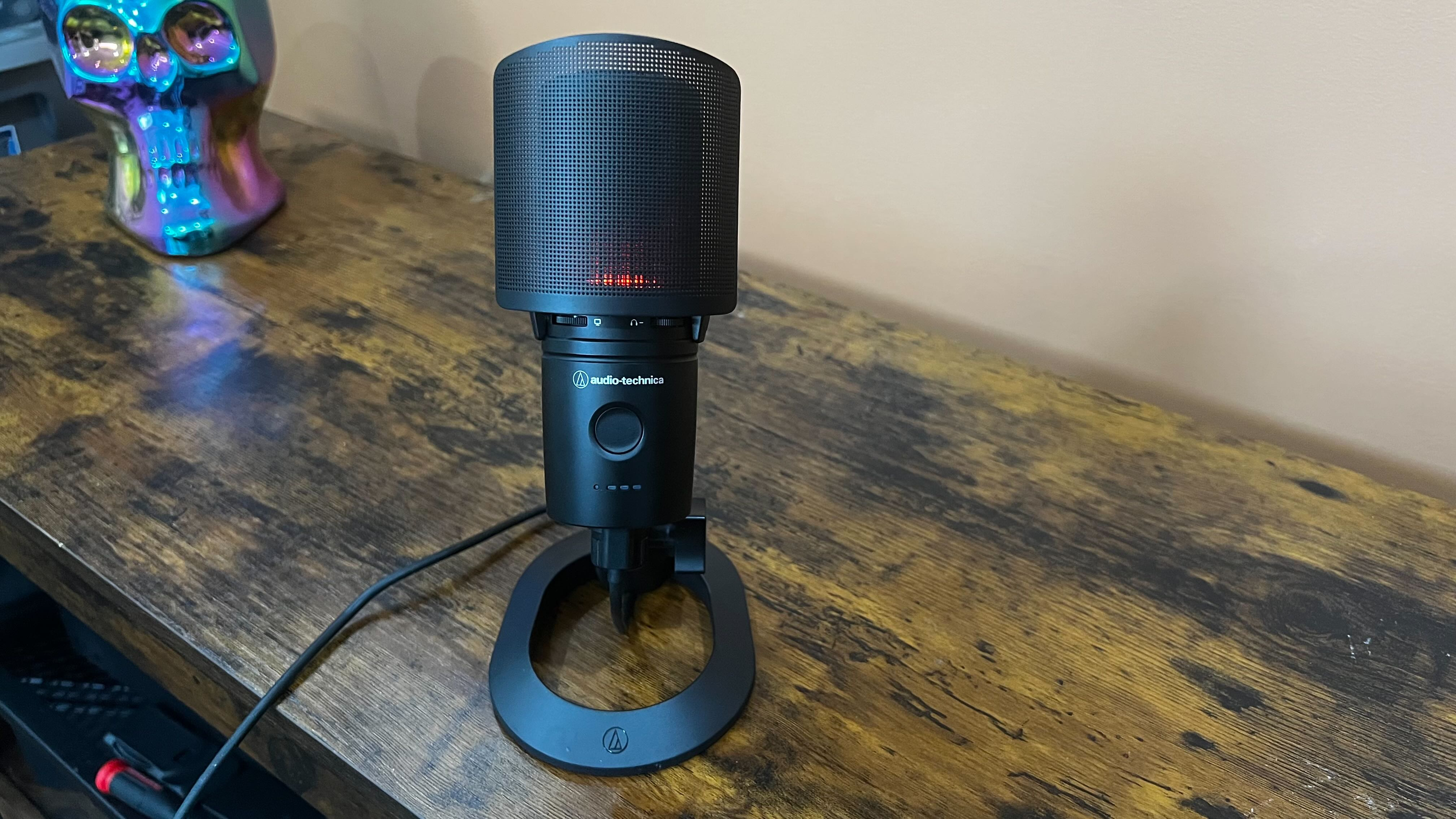
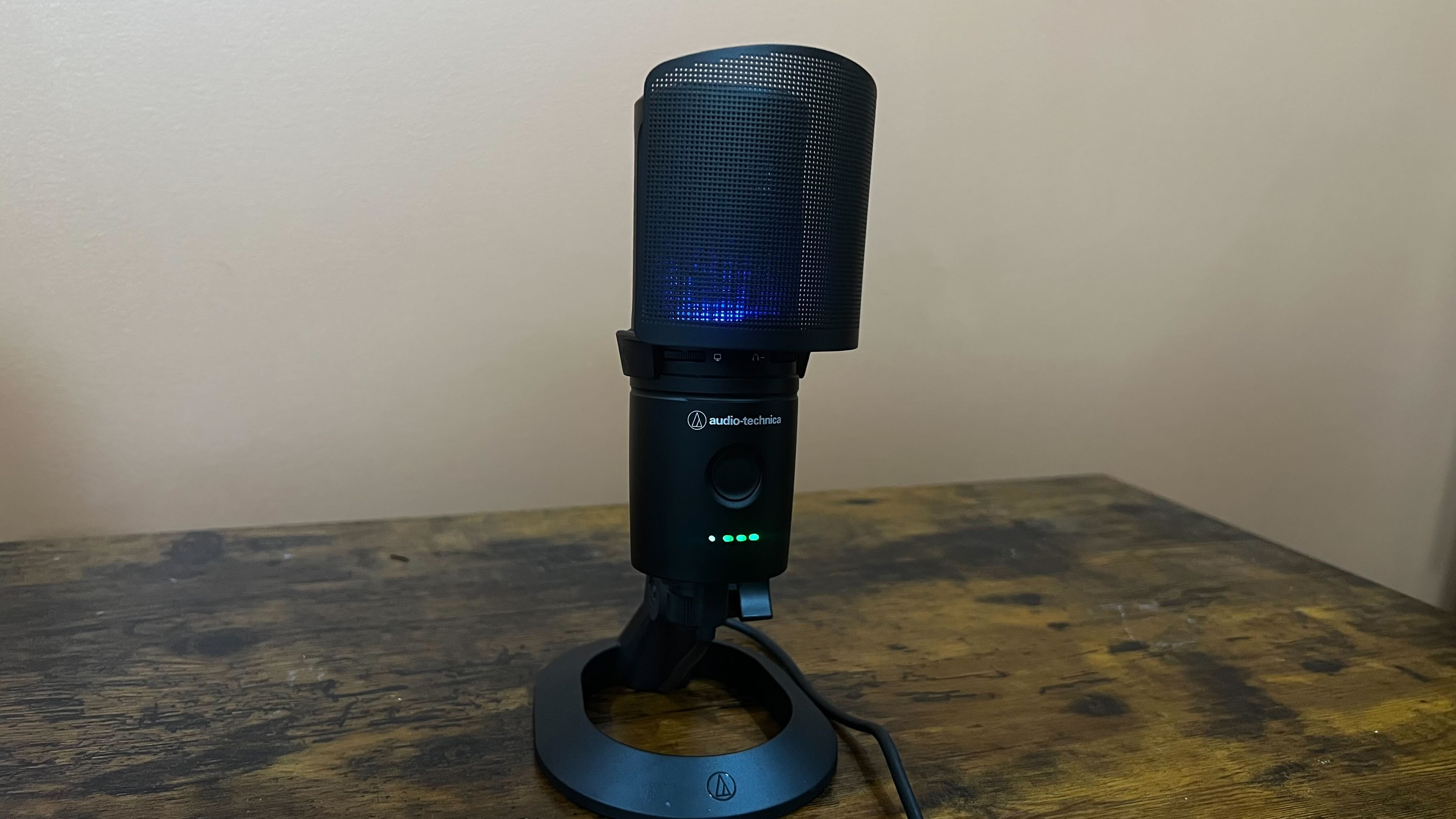
✅ You need a well-built, sturdy mic: The build quality on AT's streaming mics has been second to none, and this one is no different.
✅ You've got a soft voice: If you find yourself often projecting, the autogain feature boosts your vocals so you can be heard on stream without messing with the controls yourself.
❌ You need versatility: It's got one polar pattern, and for the same price, you can scoop up other options you can use for group recordings if you're looking for flexibility.
❌ You're looking for quiet: The built-in noise reduction is nice but doesn't quite eliminate annoying keyboard clicks.
The microphone's extended frequency response range ensures no subtleties are lost during recording; as you can hear in the sample below, my voice sounds crisp without auto-gain being turned on. The next recording with auto-gain turned on didn't sound as good and basically made me sound way too loud. Again if you speak softly, this might work for you.
While the clip-on pop filter adds a nice visual touch, I'm unsure if it effectively dealt with plosive sounds. Investing in a more professional-grade pop filter might be a wise choice for podcasters or those who do a lot of talking in their recordings.
It's worth noting that the AT2020USB-XP offers only one polar pattern, lacking the versatility of a microphone like the Blue Yeti X, which can accommodate multiple speakers and various situations.
In terms of sound and pricing, the AT2020USB-XP competes with the likes of the HyperX Quadcast S and the Elgato Wave 3. You can hear how it holds up against these two in the sound comparison below.
If I were to nitpick, the other microphones offer more personality with their fun designs, color options, and in the case of the Quadcast S, RGB lighting. However, if you're a streamer who doesn't feature the microphone on camera, this may not be a significant concern, especially considering the exceptional sound quality the AT2020USB-XP delivers.
With its exceptional audio reproduction, capturing the nuances of your voice during a true crime podcast or any other recording endeavor becomes effortless, eliminating the need for excessive post-processing. Not only does the AT2020USB-XP sound great, but it also looks sleek and robust on your desk—It's a visual and auditory delight for only $169.
The Audio-Technica AT2020USB-XP is a wonderful premium microphone that sounds great and is built to last with some interesting quality-of-life features.

Jorge is a hardware writer from the enchanted lands of New Jersey. When he's not filling the office with the smell of Pop-Tarts, he's reviewing all sorts of gaming hardware, from laptops with the latest mobile GPUs to gaming chairs with built-in back massagers. He's been covering games and tech for over ten years and has written for Dualshockers, WCCFtech, Tom's Guide, and a bunch of other places on the world wide web.
